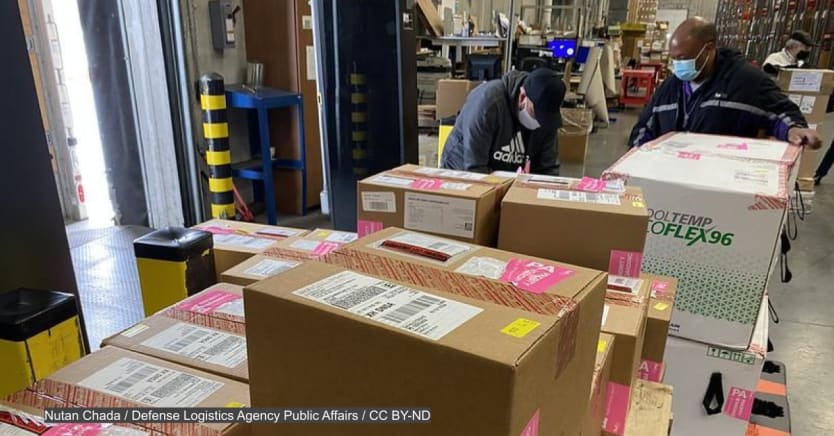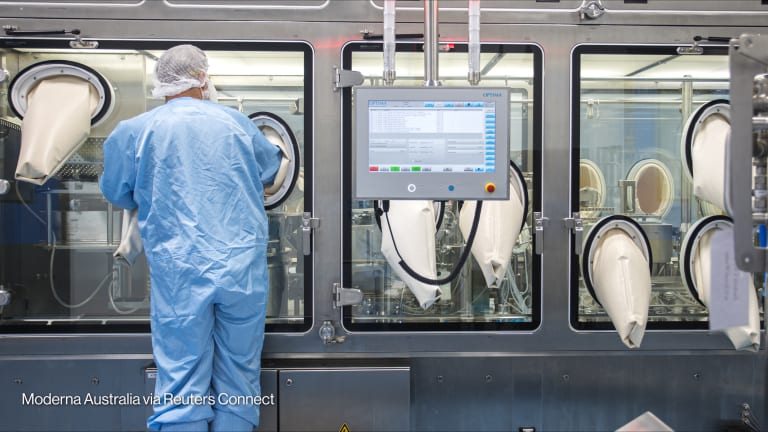In Brief: Lift export barriers to boost global vaccine supply, Moderna says

The key to expanding supplies of Moderna’s COVID-19 vaccine globally is removing U.S. export barriers, according to Stéphane Bancel, the company’s chief executive officer.
American vaccine companies, including Pfizer and Moderna, are bound by contracts that require them to fulfill U.S. government vaccine orders before exporting globally.
“The biggest thing that will help the world soon is the U.S. being … [allowed] to export,” Bancel said Tuesday during an online event about vaccine manufacturing in Africa.
Why this matters: Globally, countries have suffered from limited access to doses because of rigid intellectual property rights and national export restrictions around vaccines and the inputs needed to produce them. At the same time, nations such as the United States and the United Kingdom have hoarded doses as they vaccinate large amounts of their populations. The U.S. has administered over 187 million doses, while the African continent has administered about 13 million.
In Brief: Only 70,000 people are fully vaccinated for COVID-19 in Africa
In Africa, the number of vaccinated people pales in comparison with wealthier parts of the world.
What’s next: Bancel said quickly expanding manufacturing capacity to other countries could be a challenge because Moderna’s COVID-19 vaccine is based on new messenger RNA technologies and there aren’t enough people trained in this area.
“I cannot go and hire people who know mRNA. That is the challenge of a new technology,” he said.
He added that there is “incredible manufacturing capacity in the U.S.” In the first three months of 2021, the company produced 110 million doses. It aims to manufacture 1 billion doses this year and 2.8 billion doses next year.
“Soon the U.S. will not need any more vaccines,” Bancel said. “The No. 1 magic wand that we can be using is letting me and other vaccine companies export from the U.S.”

Search for articles
Most Read
- 1
- 2
- 3
- 4
- 5




